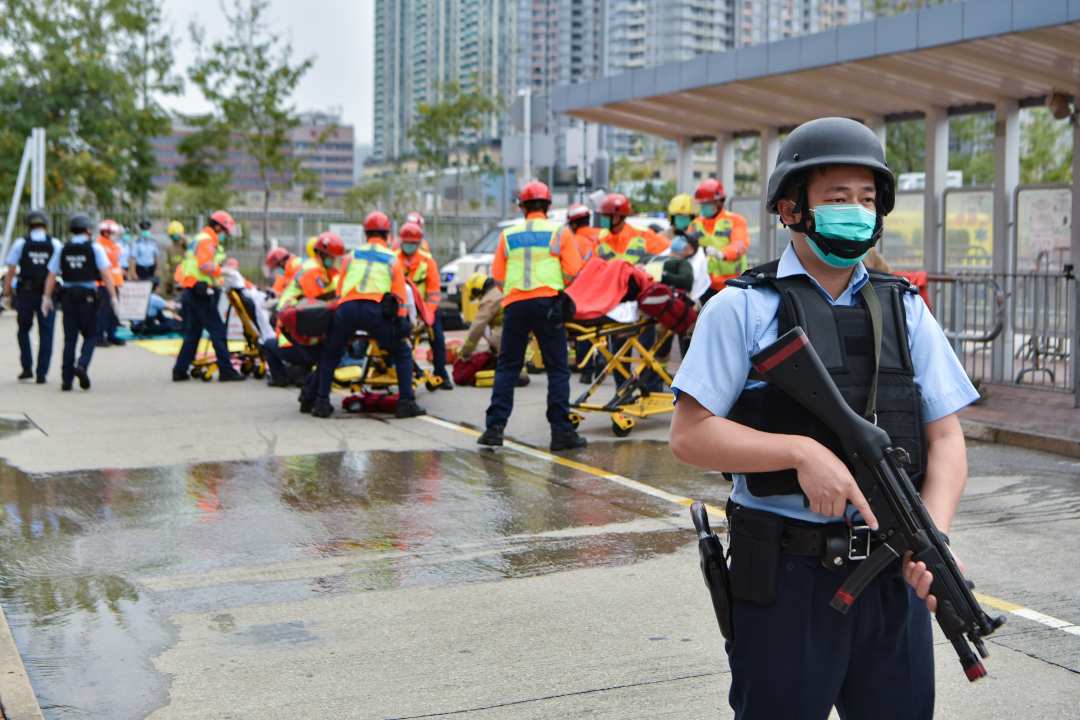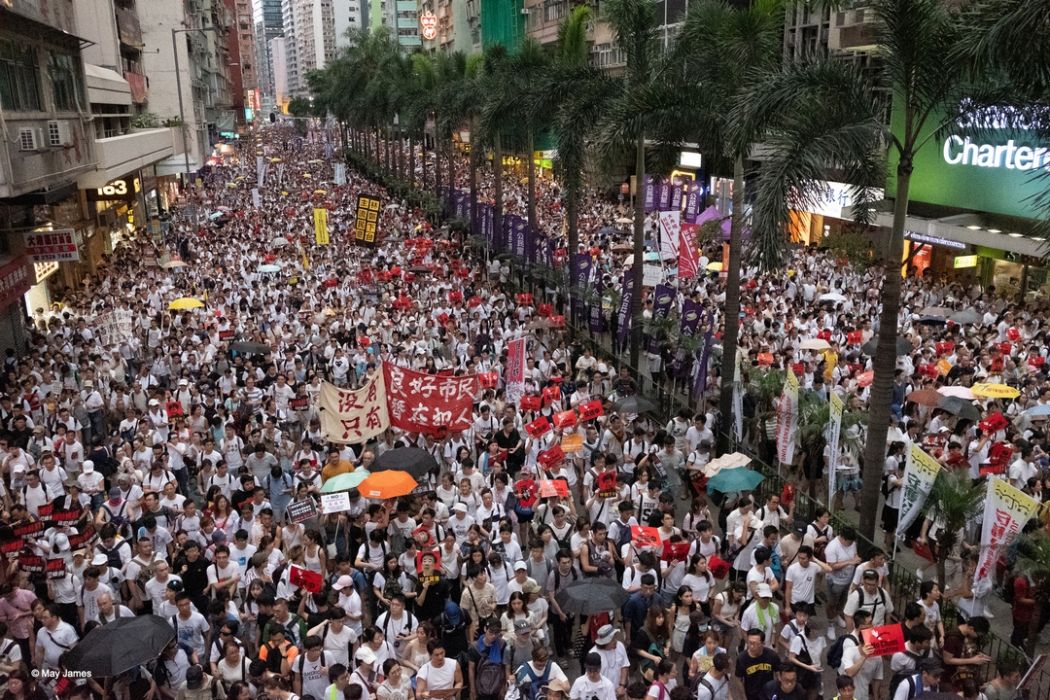Something new and sinister has been developing alongside the outbreak of the coronavirus – it is the emergence of an official narrative that Hong Kong is in the grip of a terrorist threat from the protest movement.
And, according to a Financial Times report, this message has now been conveyed to diplomats in Hong Kong as part of the government’s attempts to sway international opinion.

In case anyone missed any of this the Inter-departmental Counter Terrorism Unit (ICTU) conducted a massive anti-terrorism exercise this month involving 250 officers from various branches of the disciplined services.
If indeed it is true that Hong Kong stands on the brink of a terrorist outbreak it is very serious and coming in the middle of a pandemic, suggests a level of irresponsibility and callousness that defies belief.
However, despite a slew of weapons discoveries, arrests and even a bizarre demonstration of what happens when a bomb is exploded, not a single piece of concrete evidence has been produced linking these extremely well publicised weapons seizures with proof of the protest movement’s responsibility. Nor is any of this even vaguely sufficient to sustain the claim of a terrorism outbreak.

Alongside weapons seizures have been reports of an outbreak of explosions. This also sounds alarming but the reality is that these explosions have resulted in very minor damage to a lift in Mong Kok, a fire in a public toilet damaging a toilet seat and fire bomb attacks on the car park of Sheung Shui Police Married Quarters resulting in little damage and no injuries.
No one in their right mind is defending these actions but they fall some way short of allegations of any kind of significant terrorist threat.
In lieu of any evidence that terrorism is causing serious damage the police have staged four rounds of raids this year in which weapons and bomb making material were seized. A smaller scale discovery of an alleged explosives cache was also reported on March 26. This follows what was described as the “largest ever” seizure of bomb making equipment back in July, a month after the anti-extradition protests erupted.
It should be stressed that no convictions have been secured as a result of these arrests. Charges against two of those arrested in July have been withdrawn; other cases are awaiting trial.

The lack of convictions has done little to dissuade the police from either implying or directly pointing to protest movement activists as being responsible for these alleged crimes.
In the July case the police said they had found a t-shirt on the premises emblazoned with the name of the now banned Hong Kong National Party. Arrests made on January 15 combined charges of bomb making with suspicion of taking part in the illegal New Year’s Day protest rally.
A police spokesman, without producing evidence, also accused those arrested of being core members of a “relatively hidden valiant group”, the term used to describe frontline protestors.
Later in January, following arrests arising from an alleged bombing of the Shenzhen Port border post, the police said they had found a single message on the Telegram app used by protestors describing this attack as “just a warning” and stating, “there will be more real bombs to come”.
It is very hard to imagine that “evidence” of this kind could be used in a court of law but it was clearly helpful in framing the police terrorism narrative.

In February an alleged bomb was “partially detonated” at the Lowu railway station and another was defused. The police described this as being a “big step towards terrorism” in an “ongoing bombing campaign” by unnamed extremists.
In March a raid over two days produced an impressive haul of explosives and other material described by the police as being of a type commonly used by international terrorists. They also alleged that these explosives were planned for use at public gatherings to target police officers, without providing any evidence for this allegation.
As the police have been unable to point to a single act of alleged terrorism that has caused any form of injury they have fallen back on what-ifs. In the wake of the raids in March a police spokesman said: “It appears potentially a tragedy has been averted, and certainly it is clear that these bombers have no concern for the safety of others – from where they’ve been building the devices, to where they’ve been placing them”.
As it is unknown where the alleged bombs were to be placed or indeed whether these bombs were ever actually assembled, these claims remain in the realm of supposition.

However this has not deterred government officials from Carrie Lam, the Chief Executive in Name Only (CENO), downwards from briefing foreign consulates on these matters and saying that Hong Kong was in a state of high alert.
Terrorism is a very serious matter and combating it is not achieved by throwing around accusations and pre-judgements on offences that have yet to come before the courts.
Ever since the protest movement began the government and its bosses in Beijing have insisted that the issue is not the underlying demand for liberty. They prefer to describe what’s happening as an outbreak of violence, coordinated by shadowy foreign forces. Now, yet again, the police have been called in to put some meat on the bare bones of this claim.

What is interesting is that despite many willing hands propelling these allegations in the mainstream media, they have gained so little traction among the public.
